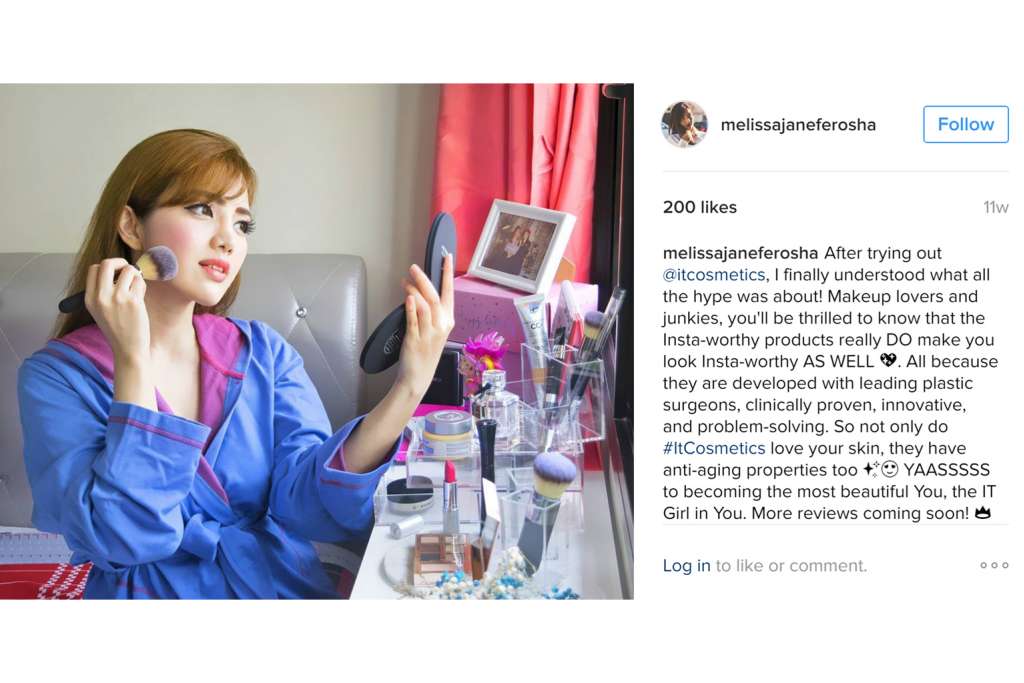Netizens who receive products or services worth more than $100 from companies – or regularly over a period of time – must now declare them to the taxman.
Some examples are five-course meals, sponsored travel, magazine subscriptions or door gifts at events. These are often given in return for reviews or advertisements on the social media platforms of prominent bloggers or influencers, as trendsetters are called.
The taxman has come to a consensus with social media management companies and bloggers on the conditions under which such “non-monetary benefits in kind” have to be declared as part of their taxable income.
The rules were, however, issued only close to the filing deadline this year.
Thus, the Inland Revenue Authority of Singapore (Iras) told The Straits Times that the online community has until April 18 next year to declare the items and, therefore, the income received last year. Those who flout the rules will have to pay a penalty amounting to double the tax undercharged.
In March, Iras wrote to bloggers to remind them that such benefits must be declared as part of their income. They were to do so by the following month.
Some bloggers and social media influencers said it was hard to keep track of multiple, low-value items given to them.
Iras responded that the requirements are not new and are similar to those for other self-employed taxpayers. It has now clarified the guidelines, put them online and communicated them to bloggers, their management companies and the National Youth Council.
Netizens welcomed the clarity that the new guidelines bring.
“This $100 clarification gives bloggers and influencers more clarity as to what needs to be declared,” said Ms Yang Huiwen, regional director of social media company Netccentric, which has a network of 62,000 blogs here.
Mr Mark Amatya, a director at accounting firm PwC, agreed. “The threshold of $100 seems reasonable as it may mean that most items provided to bloggers are exempt from tax or reporting,” he said.
Mr Daniel Ang, 38, who runs food review blog DanielFoodDiary, said such guidelines mean influencers will have to take additional effort to keep track of and record what they receive – which could be quite challenging, as they sometimes receive unsolicited gifts. “The value of some things can also be intangible – for example, an autographed CD. How do we value that?” he said.
Iras, too, may not have an easy job enforcing the filings of many low-profile bloggers, said Ms Jill Lim of Deloitte Singapore.
Read also: Taxman knocks on bloggers’ doors
Ms Wu Soo Mee, partner at Ernst & Young Solutions, said a probable way to track such payments is to screen the social media platforms for individuals who may receive such potential taxable income.
Some influencers say companies should also have guidelines to be more transparent about the value of products given to them.
Miss Melissa Jane Ho, 29, who runs fashion and lifestyle blog melissajaneferosha, said: “Sometimes, brands don’t provide us with the value of the gifts, products or services, which makes it difficult for us to keep track of every single offer or transaction.”
Examples of what has to be declared
To help bloggers determine if a gift or service has to be declared, the Inland Revenue Authority of Singapore listed several scenarios and the corresponding tax treatment. Some of these are:
Scenario: A blogger receives a box of mooncakes worth $80. Tax treatment: No need to declare as its value does not exceed $100.
Scenario: A blogger attends a five-course meal tasting provided by a restaurant, which adds up to $156. Tax treatment: Must declare as the value exceeds $100.
Scenario: A blogger receives five sessions of eyebrow threading worth $98. Tax Treatment: Must declare as it is provided over a period of time.
Scenario: A blogger receives a door gift worth $120 during a product launch. However, there is no obligation to review the gift. Tax treatment: Since the value of the gift exceeds $100, it has to be declared.
But complimentary gifts given on an ad hoc basis and below $100 do not need to be declared.
Scenario: After reviewing a perfume, a blogger is rewarded with a handbag worth $98.Tax treatment: All monetary payments and non-monetary benefits are taxable if they are given in return for services rendered.
In this case, the blogger has to declare the $98 as the bag is not for one-time consumption or testing.
Read also: Taxman at bloggers’ doors: ‘This is content, not income,’ says one

This article was first published on Nov 18, 2016.
Get a copy of The Straits Times or go to straitstimes.com for more stories.






